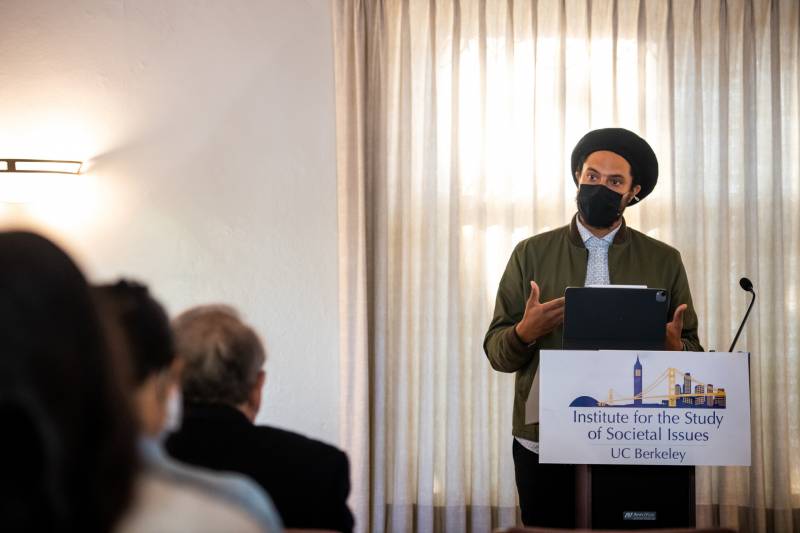The above video is a reparations task force meeting originally livestreamed by Emend the Mass Media Group.
“Precision early on is always best,” said task force member Dr. Jovan Scott Lewis, in the October meeting. Lewis is associate professor and chair of the UC Berkeley Department of Geography. “I wanted us to make sure that we were very clear about who we were talking about and what kinds of injuries we were tracing.” He zeroed in on questions they've yet to answer: What is the cutoff point to award reparations? How long do you have to have lived in California to qualify? At what point do you have to have had arrived in the state?
For Black Californians who were born and raised in the state, but had to leave, would they still be eligible for reparations? "That's an open question," Moore said.
On Dec. 8, the task force will host a panel focusing on entertainment, arts and culture, so those with experience in those industries are especially welcome to participate.
There are a few different ways to get involved. Here's how to watch, and how to participate through public comment, and some tips for finding even more opportunities to plug into local and national conversations on reparations.
What's on the agenda for December?
Before looking at how you can participate, the agenda is a great place to start to understand the broader topics that will be discussed. For those interested in the meeting materials, these are also available on the California Department of Justice website and link to an 848-page document (which includes meeting minutes of the October meeting) and two more documents (64 pages and 68 pages) that include some testimony from experts who will also provide their perspective live.
The public comment period for Dec. 7 is 9:05 a.m.-10:05 a.m., followed by a panel on infrastructure from 10:15 a.m.-11:30 a.m. with expert testimony from:
In the afternoon, a panel on gentrification and homelessness from 1:50 p.m.-3:00 p.m. will feature expert testimony from:
On Dec. 8, the public comment period is again from 9:05 a.m.-10:05 a.m., followed by a panel on entertainment, arts/culture and sports with testimony from:
Once you have the agenda and decide to tune in, here's how to watch and make your voice heard.
Watch: Live on YouTube or the CA Department of Justice
Emend the Mass Media Group, a Black media outlet that self-identifies as "laser-focused on political advocacy for reparations," will continue to livestream the task force meetings. Previous meetings are available on their YouTube page.
The California Department of Justice also will be livestreaming the meetings as of December. For those who prefer to watch afterward, or watch the two days' worth of meetings all at once, previous meetings are available on the Department of Justice website, which links to the DOJ YouTube page.
Ensure your voice is heard — make a public comment
The task force uses BlueJeans, a desktop application similar to Zoom that can be accessed through a mobile app or on a desktop computer.
To give public comment, join the meeting through the BlueJeans app.
For now, public comment takes place at the beginning of each day on a first-come, first-serve basis. Click the "raise your hand" button when prompted. Each person has up to three minutes to make a comment, after which the microphone is turned off.
Find reparations-related initiatives locally
While California is discussing reparations on the statewide level, many cities are considering their own initiatives.

